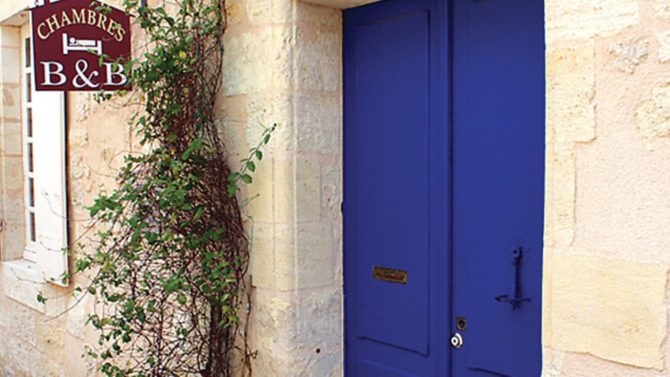How to maximise your income from a chambres d’hôtes in France

Dreaming of opening your home to guests in some cosy corner of France? Ian Blackshaw offers some suggestions to maximise your financial return
Many expats moving to France buy larger properties and, with no previous experience, go into the business of chambres d’hôtes, sometimes also converting outbuildings into country gîtes for letting purposes.
In order to get the best returns out of these ventures and achieve repeat bookings, a number of basic rules need to be followed.
First of all, as with property in general, location is very important, and this will usually determine the kind of clientele you will aim your marketing at. For example, if the property is near the sea, gîtes will be particularly popular with families and should be furnished accordingly. Properties in the countryside may appeal more to older punters seeking some peace and quiet in a comfortable rural retreat with all the trappings.
Wherever the property is situated, local places of interest need to be pointed out and information given about opening times and entry fees. Nowadays, these, as well as details of the property, will be in the form of a website, which, quite frankly in the digital age in which we live, is a sine qua non.
The website is your shop window in which to display the goods and services that you are offering to potential clients. The site needs to contain directions to the property and be kept up to date; it should also have an online enquiries and booking form link.
Offering special seasonal offers from time to time can attract more custom, especially if you can offer good rates and activities at Christmas and New Year. Also, include on the website previous guests’ comments. In any case, you should keep a visitors’ book and make sure that all your guests sign it before leaving.
Depending on the size of your property and the number of guests that you can accommodate, you may wish to attract guests with special interests, such as bridge parties and painting groups, or people wanting long weekend breaks. In such cases, if you are targeting Brits, easy access to your property from the UK is essential.
The general rule is that the more versatile the property, the better its letting potential. But note that if you have more than six letting bedrooms, you are considered by the French authorities to be a small hotel and will have to comply with certain statutory registration requirements, as well as meeting specific standards.
One thing you will need to decide is whether or not you are going to offer your guests evening meals. These can be basic or more adventurous, such as gourmet dinners with fine wines. They need to be carefully planned and costed, especially if you wish to attract discerning gourmets and wine buffs to your table d’hôtes.
Another basic decision to make is whether to accept dogs and whether to make an extra charge for them, especially to cover any damage they cause to the property. Having dogs yourselves and accepting guests’ dogs can prove an advantage over competitors who do not have them or accept them.
As far as accommodation is concerned, bedrooms should have en-suite facilities and free wifi access. While not essential in bedrooms, TVs with satellite channels should be available for use by your guests in communal areas of the property.
The rooms should be nicely furnished and well appointed and the sanitaryware of a high and modern standard. There should also be plenty of hand and bath towels, face cloths and good quality toiletries, such as bath and shower gels, hand and body lotions, cotton buds and tissues. Also, in the bathrooms, there should be electric hairdryers and razor points. You should always include tea and coffee making facilities in the rooms – these are always appreciated by guests.
As regards gîtes, they should be well equipped with dishwashers, fridges, cookers, crockery, cutlery and glasses, all of a high standard. The more luxurious, the more rent you can charge.
Washing machines are also essential and should be available either in the property itself or elsewhere on site, with easy access. Likewise, irons and ironing boards should be made available.
It is always a nice gesture, and appreciated by your guests, to leave a complimentary bottle of wine. Again, this should be a decent one. Do not penny pinch – it is a false economy to do so.
During the winter months, it is prudent to allow for heating costs of your gîte when deciding on your pricing. Always remember to take a deposit to secure the booking.
To get your chambres d’hôtes or gîte noticed more on the internet, you can pay to have your website given some priority.
You can also increase your potential lettings by being on an agency booking site. Make sure you read their terms and conditions very carefully, including their requirements for your availability to receive guests.
You need to include public liability cover in your household insurance policy of the property, to give you some recourse against any possible claims for personal injuries suffered by your guests while on your property.
To compete with local French guesthouses and hotels, offer discounts for extra nights stayed. For example, for every three nights or more, a reduced nightly rate would apply.
In any case, you will, as they say, need to do your sums and ensure that you cost everything and cover all your overheads and expenses, in order to show a good profit and so that you are never out of pocket.
Share to: Facebook Twitter LinkedIn Email


